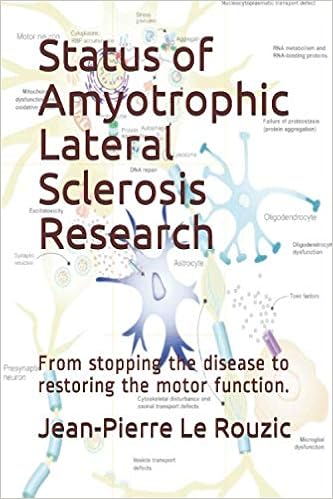Modeling neurodegenerative diseases is difficult because of poor access to human samples. Animal models fail to to model the disease due to critical differences between humans and other mammals.
The advent of human-induced pluripotent stem cell (hiPSC) technology now allow disease modeling using human samples that can be used for drug discovery.
Bosutinib and ropinirole are two candidate anti-ALS drugs recently identified in iPSC-based drug screens and are now under clinical investigation.
Bosutinib is a tyrosine kinase inhibitor used for the treatment of chronic myelogenous leukemia.
Bosutinib, an inhibitor of Src/c-Abl, has been found to increase the survival of ALS iPSC-derived MNs by inducing autophagy and reducing misfolded SOD1 and TDP-43 proteins.
Furthermore, bosutinib has been shown to delay disease onset and prolong survival of SOD1-mutant mice.
A Spanish group reported in 2018 that 2 ALS patients in whose Src/c-ABL seemed to have a beneficial effect.
A 12-week phase I dose-escalation open label trial has been initiated in early 2021 in ALS subjects (UMIN000036295) to evaluate the safety and tolerability of bosutinib at 4 levels (100, 200, 300 or 400 mg/day).
The results of this clinical trial had been announced. Some patients may have stopped progressing.
Of the nine patients who drank 100-300 milligrams of bosutinib daily for 12 weeks, five stopped progressing. Of the nine, the remaining four remained progressing at the same pace. Professor Inoue explains, "A phenomenon that is not normally seen has occurred."
Examination of the blood before taking the drug also revealed that the five people who stopped progressing produced biomarkers than the four who where still progressing. It can be an indicator of whether the drug is likely to work.
The results of this clinical trial will be announced online at the "25th World Neurology Conference".
Extreme caution is required, we saw many “breakthrough” announcements in ALS without any concrete result. It's an open label trial (without control arm), with a few patients and for a short time.
And the reason why it was beneficial for some patients and not for others is unknown.
In addition making specific (to avoid side effects) c-Abl inhibitors is a challenging task, and companies have tried and abandoned some past efforts for lack of success.

